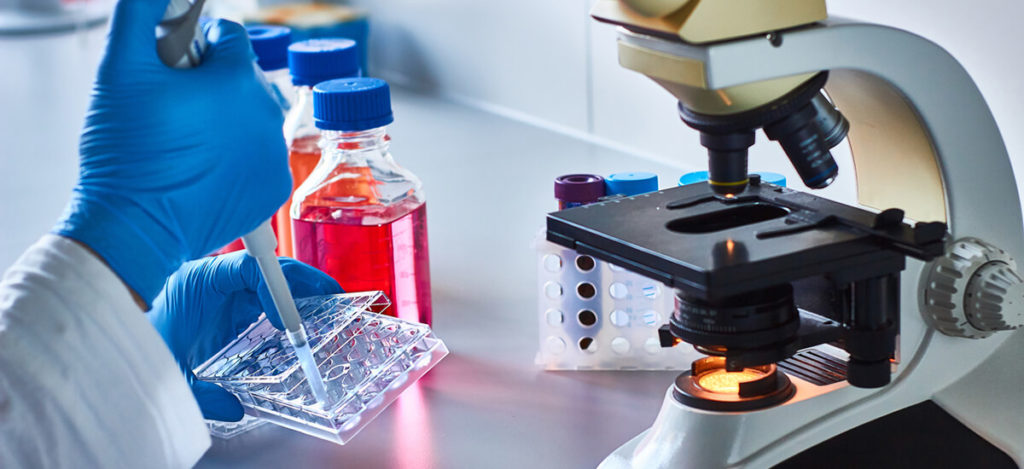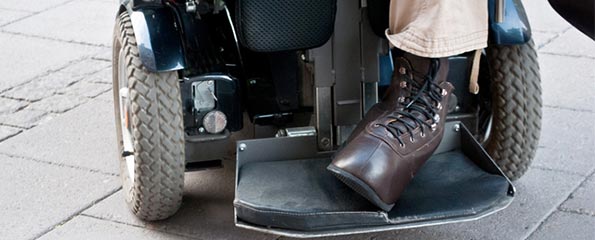This study will investigate in patients with Crohn’s disease and ulcerative colitis how the body’s immune system controls inflammation in the gastrointestinal tract (stomach and intestines)-specifically, how lymphocytes (a type of white blood cell) function in inflammatory responses. This protocol does not involve any experimental treatments.
Official Title
Studies of Immune Regulation in Patients with Ulcerative Colitis, Crohn’s Disease, or Unclassified Inflammatory Bowel Diseases
Conditions
– Crohn’s Disease- Inflammatory Bowel Disease- Ulcerative Colitis
Study Type
Observational
Study Design
Natural History
Further Details
Patients between the ages of 8 and 75 years of age with Crohn’s disease or ulcerative colitis or symptoms of inflammatory bowel disease may be eligible for this study. Screening tests may include the following: medical history and physical examination, routine blood tests, examination of stool specimens, X-rays such as barium enema or upper GI series, proctosigmoidoscopy, colonoscopy, gastroduodenoscopy, and small bowel biopsy. Participants will receive medical treatment according to the best generally accepted measures for treating Crohn’s disease or ulcerative colitis. This may include anti-inflammatory drugs, immunosuppressive drugs, and antibiotics to treat infections. A surgical consultation may be recommended for patients whose disease does not respond to medical treatment. If surgery to remove intestinal tissue is recommended, a qualified gastrointestinal surgeon will perform the procedure. In addition, participants may undergo the following procedures:- Blood drawing – No more than 450 milliliters (30 tablespoons, or 15 ounces) of blood will be taken from adults over a 6-week period. A maximum of 7 ml (1/2 tablespoon) of blood per kilogram (2.2. pounds) of body weight will be obtained from children within the same time period, with no more than 3 ml/kg taken at any one time. – Leukapheresis – This procedure is done to collect large quantities of white blood cells. Whole blood is collected through a needle in an arm vein, similar to donating blood. The blood is circulated through a machine that separates it into its components, and the white cells are removed. The rest of the blood is returned to the body, either through the same needle or through another needle in the other arm. – Intestinal biopsies – Intestinal tissue will be obtained during colonoscopy with intestinal biopsy in patients who require this procedure as part of their standard medical care. Patients are given a sedative to reduce anxiety, but are conscious during the procedure. A flexible tube is inserted into the rectum and large intestine, allowing the physician to see the intestinal mucosa. At various places, small pieces of tissue are plucked out. This natural history protocol provides for the evaluation of patients with idiopathic inflammatory bowel disease (ulcerative colitis, Crohn’s disease, and additional undefined inflammatory conditions of the gut) either on an inpatient or outpatient basis. The purpose of this protocol is to assess the extent and activity of the disease in patients, conduct immunologic studies of lymphocyte and antigen-presenting cells derived from peripheral blood and tissues, administer and monitor treatments, and study the genetic risk factors for these diseases The immediate aims of these studies are to define the immunologic abnormalities present and to identify genetic susceptibility factors in patients with these diseases. The long term goal of this protocol is to identify specific targets for development of novel therapeutics for inflammatory bowel diseases. This protocol provides for routine (medically indicated) studies of the patients at the Clinical Center as well as the procurement of clinical specimens from the patients for research purposes. In addition it provides for the acquisition of blood and tissues from eligible patients seen at other medical institutions that have approved this Protocol.
Study Start
Eligibility & Criteria
Genders Eligible for Study: Both Accepts Healthy VolunteersCriteria INCLUSION CRITERIA:Subjects will meet the following criteria:1. Individuals with any clinical features consistent with inflammatory bowel disease (intestinal inflammation), i.e., abdominal pain, weight loss, diarrhea, hematochezia or melena or suggestive extra-intestinal symptoms in which a diagnosis has not been verified.or2. Individuals with clinical features consistent with inflammatory bowel disease and histopathologic changes demonstrating inflammation of the intestine.or3. Individuals with a verifiable diagnosis of inflammatory bowel disease (Crohn’s disease or ulcerative colitis or IBD known to be associated with co-existing conditions) which is supported by characteristic a) clinical features (symptomatic or endoscopic) or b) radiographic findings and c) histopathologic changes consistent with Crohn’s disease or ulcerative colitis.4. All subjects to be enrolled will be between ages 8-75.5. To participate in the research biopsies during endoscopy, subjects must have the following lab values within two weeks of the procedure:Hematocrit greater than 30%Platelet count greater than 100,000PT INR less than 1.3 or PTT prolonged by less than 3 secondsEXCLUSION CRITERIA:1. Failure to meet the inclusion criteria.2. Any medical, psychiatric, or social conditions which, in the opinion of the investigators, would make participation in this protocol not in the best interest of the subject.
Total Enrolment
300
Contact Details
[1] National Institute of Allergy and Infectious Diseases (NIAID), 9000 Rockville Pike, Bethesda, MarylandAll content and media on the HealthEngine Blog is created and published online for informational purposes only. It is not intended to be a substitute for professional medical advice and should not be relied on as health or personal advice. Always seek the guidance of your doctor or other qualified health professional with any questions you may have regarding your health or a medical condition. Never disregard the advice of a medical professional, or delay in seeking it because of something you have read on this Website. If you think you may have a medical emergency, call your doctor, go to the nearest hospital emergency department, or call the emergency services immediately.







